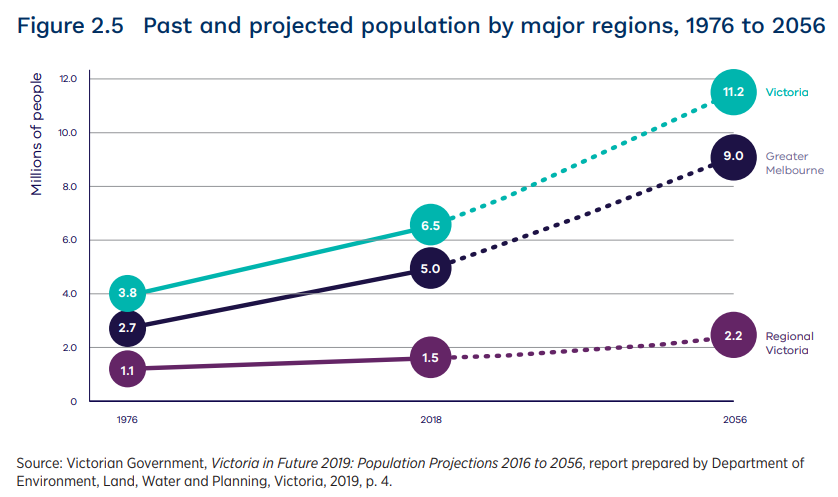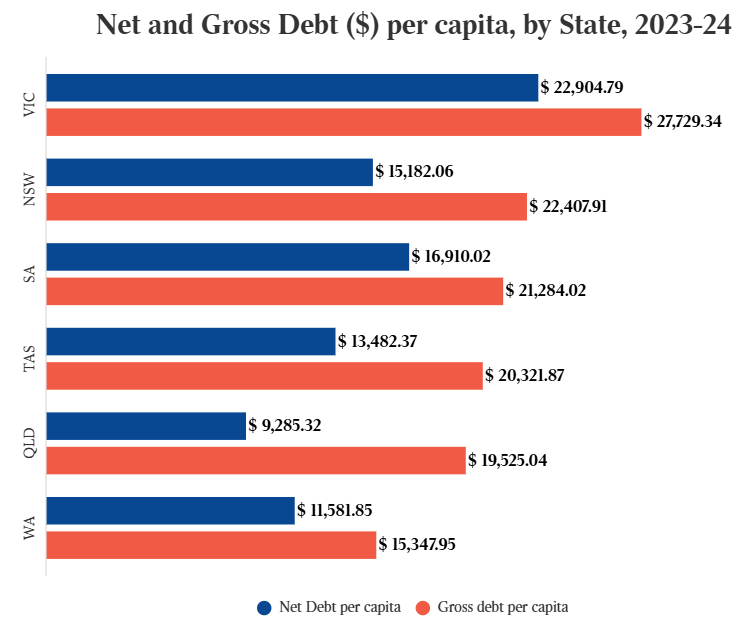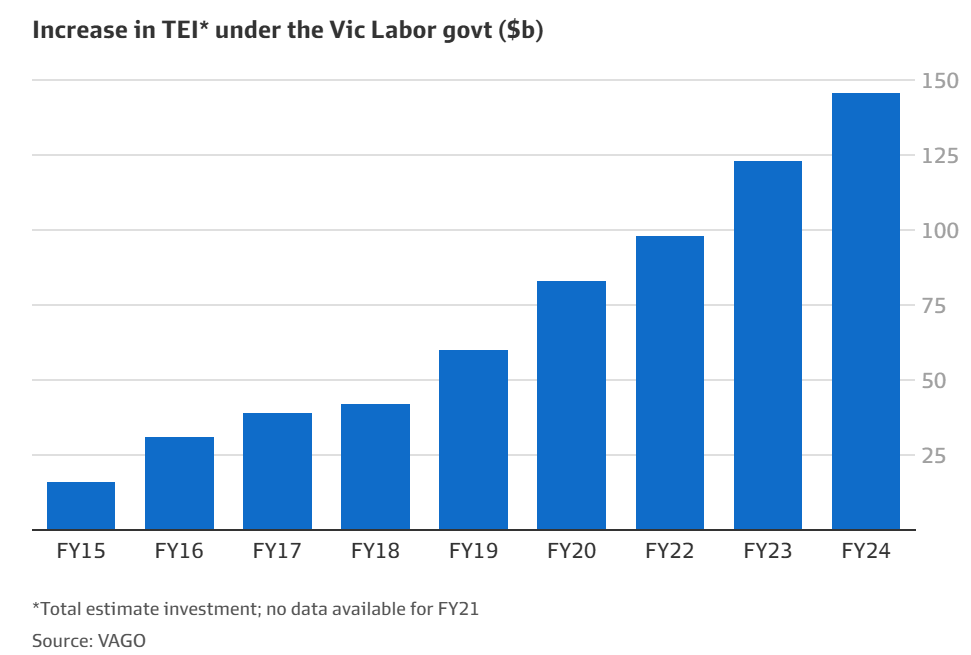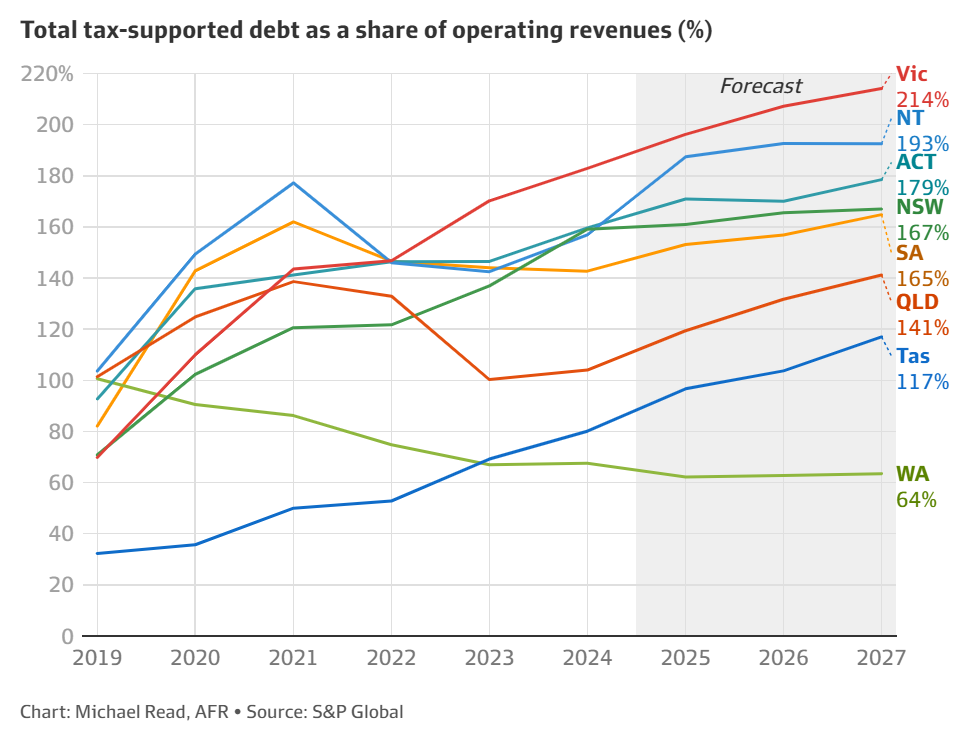Melbourne’s population has increased by around 2 million people this century.
Melbourne’s population is projected to increase by another 3.5 million over the next 31 years to 9.0 million by 2056.

This would mean that Melbourne would have added 5.5 million people in only 56 years.
All Melburnians have felt the deleterious impact of this population explosion.
Infrastructure has become crush-loaded, traffic congestion is rife, and housing quality has degraded as Melburnians are forced to live in shoebox apartments or far away on postage-stamp-sized lots on the fringe.
The population explosion is also bankrupting the state government.

The state government has embarked on expensive infrastructure projects to keep pace with the rampant population growth. Nearly all projects have experienced significant cost overruns, including $2.5 billion for the Metro Tunnel, $4 billion for the West Gate Tunnel, and $16 billion for the North East Link.
The Suburban Rail Loop (SRL) is the worst of all. It was initially announced to cost $50 billion, but the Parliamentary Budget Office forecast that building and operating all three stages could cost $200 billion.
This month, the Victorian Auditor-General’s Office warned that the costs of 110 significant projects have increased by $11 billion since last year.

Nearly half of the 110 significant projects examined by the Auditor-General’s Office saw a rise in total estimated investment.
Meanwhile, the two main ratings agencies—S&P and Moody’s—warned that they would downgrade the state government if it fails to bring its ballooning debt under control.

Further rating downgrades would increase interest payments and debt and require further tax increases and service cuts.
It is clear from the above that Victoria cannot afford to grow its population by a further 3.5 million over the next 31 years. It would literally bankrupt the state.
The financial aspect is only one of the problems Victorians face. Eroded livability is the other.
Premier Jacinta Allan has told councils that the state will remove their planning powers if they do not commit to squeezing 2.24 million new homes (mostly apartments) into their suburbs to accommodate future migrants:
The Allan government will on Monday issue final targets for the number of residential properties it expects to be built in every metropolitan local government area by 2051.
And in an unprecedented show of force, councils are being ordered to detail exactly how they will revamp their planning schemes to enable the building blitz.
The councils have been given until October 2026 – one month out from the state election – to provide their plans.
Premier Jacinta Allan warned: “It’s simple, work with us to unlock space for more homes or we’ll do it for you.
“We’re in a housing crisis and the status quo is not an option”.
“It’s time to shake things up”.
How will established suburbs cope with the extra population?
How will schools already without enough classrooms or teachers manage more kids?
How will hospitals (already overcrowded) manage more patients?
How will the sewerage systems cope with additional waste?
How will the trains—already full when they reach the inner suburbs—take more passengers?
How will the roads (already congested) cope with more cars?
The reality is that Melbourne hasn’t built enough infrastructure for the 2 million people that landed over the past 25 years. It certainly won’t if it adds another 3.5 million, as projected, over the next 31 years.
There is no plan to build additional infrastructure in these suburbs. Jacinta Allan wants to cram more people in.
If Jacinta Allan genuinely cared about the welfare of Victorians, she would demand that the federal government cut immigration.
Victoria cannot afford endless rapid population growth.

